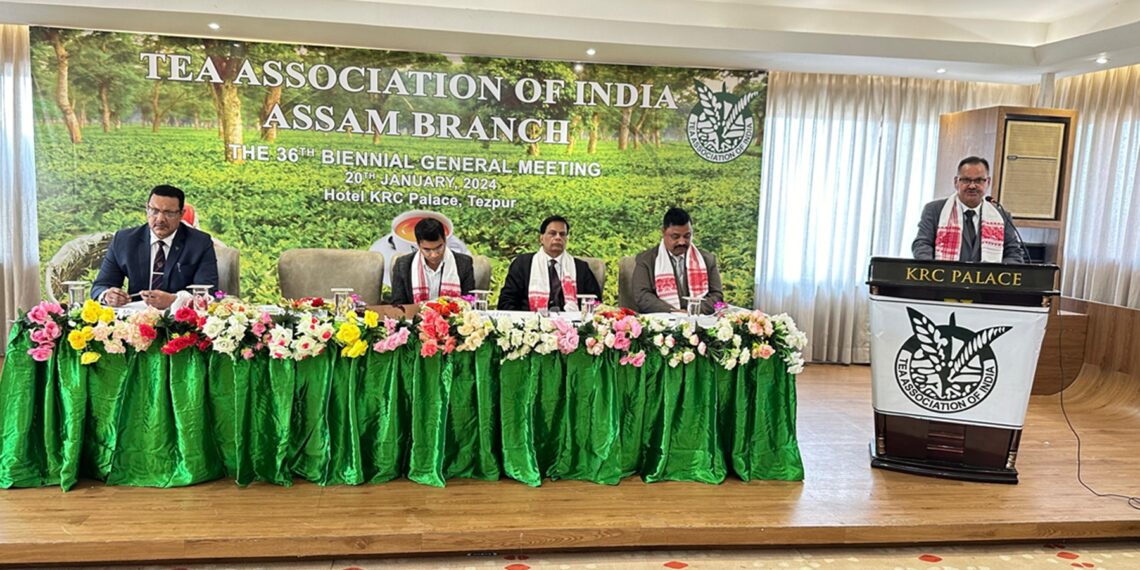GUWAHATI: Tea aficionados, industry leaders, and dignitaries converged at the Hotel KRC Palace in Tezpur for the 36th Biennial General Meeting of the Tea Association of India (TAI), Assam Branch on January 20.
The event commenced with a detailed presentation on the historical and recent data of the Assam tea industry.
The distinguished Chief Guest, Ruhul Amin, Assistant High Commissioner of Bangladesh, graced the event along with other dignitaries of TAI, Assam Branch.
“Over the past 15 years, India’s tea production has seen a commendable increase of 39%, reaching 1366 million kilograms in 2022. Assam, with a growth rate of 41%, has been a significant contributor to this surge. However, challenges in production, export, and pricing persist, prompting a collective focus on achieving demand-supply balance,” said UK Singh, chairman of TAI.
Crucial industry data spotlighted challenges such as the demand-supply gap, market concentration, and declining tea quality.
Proposals for short-term supply restrictions and long-term demand creation were also discussed, along with calls for early production closure and restrictions on subpar tea imports.
Additional challenges, including the impact of climate change and escalating costs, were addressed with proposed solutions such as precision agriculture and technology adoption.
Indo-Bangladesh trade challenges were deliberated, with a suggestion for a Comprehensive Economic Partnership Agreement.
Reforms in the Plantation Labour Act, workforce governance, and non-cash benefits were also recommended.
Healthcare concerns in tea estates, including doctor shortages and infant mortality, were underscored.
The Tea Association of India expressed appreciation for social responsibility initiatives, collaborations with NGOs, and government welfare schemes for tea workers.
Government initiatives, including the Assam Tea Industries Special Incentives Scheme, and the roles played by industry organisations were recognized.
A passionate plea for continuous innovation, aggressive marketing, and the declaration of tea as the national drink echoed through the conclusion of the meeting.
In a resounding call for collective efforts, policy reforms, and innovative strategies, the TAI laid the groundwork for the industry’s sustainability and growth.















